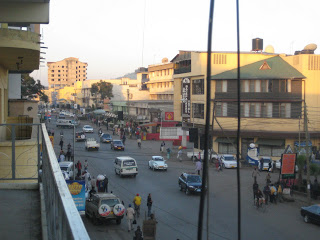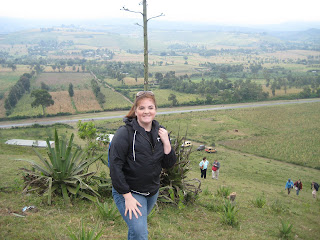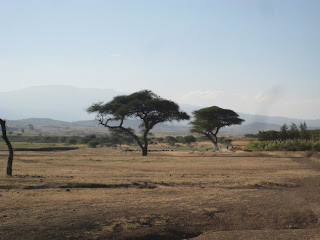Tuesday, July 15thYou know what I really like, as a woman? The right to choose.
In America, we associate that solely with abortion politics, but I think we’ve forgotten – yes, particularly us women – that the right to choose encompasses so much more. And we often seem to take it for granted.
I like that I get to choose my husband. I like that I get to choose how many children I will have. I like that I get to choose to have a career. Hell, I’m glad that I get to have one, at all. Same thing for going to college, even secondary school (high school). More than my right to choose where I’m going to go to college, I like that I get to go. I like that I get to choose to wear pants instead of only skirts, what day to go to the market, to speak in public if so compelled and yes, I also like that I get to choose to not have my genitalia mutilated.
Of course, being subjected to female circumcision, arranged marriages and not being able to attend high school are severe examples – but this is the reality for so many women in the world today. These are specific examples of things that many Maasai women cannot do, from my observations and interactions with the culture here in Tanzania. On Monday, we took a tour with an organization called Terrawatu, which promotes and preserves the rights and lives of indigenous people, in this case the Maasai, and which does some very positive community building. Terrawatu has three programs – a secondary school, which they provide funding and support, a traditional Maasai medicine clinic in Arusha, and lastly, they sponsor a Maasai women’s group by teaching them how to plant the traditional medicine trees and plants, harvest them, and sell them in the market to increase their economic capacity.
Our day began as we gathered at the Terrawatu office. While the founder is an American woman, she is currently back in the States – the National Director, however, is a Maasai man named Sululu. From our first moments in the office, Sululu just didn’t sit well with me – there was just something about him that I didn’t like. There was a moment where his cell phone rang in the middle of his introduction to our group, to which he responded by pulling it out, staring at it, then shoving it onto one of the women program coordinator’s who was sitting by him, ordering something at her in Swahili, then returning to speak to our group. It sounds like a minor detail, but my eyes narrowed. There was something in that small moment of how he treated that woman that spoke volumes to me, but I didn’t know the half of it – yet.
So first of all, we’re taken to the school and get to have a Q & A with some of the staff and faculty. During which time, Sululu felt it completely acceptable to interrupt some of the female teachers while they were talking – as if it was nothing. Then, he took us to the Maasai medicine clinic and told us about the traditional remedies. Afterwards, we headed out to the village to meet with the women’s group, learn about their tree-planting program and have lunch. Our lunch consisted of the traditional Maasai preparation of roasted goat. They killed two goats and roasted them on sticks for us – however, in Maasai tradition, only the men get to carve up the goat and they get to eat it first – the women and children only get the leftovers. They did let us western women eat the goat with them, but later on we saw the Maasai children eating up the bits of our leftovers in the trash area – and that was just something hard to see.
After lunch and then the explanation of tree-planting program, we divided up into two groups – men and women. The men of our group went with Sululu and the other Maasai men behind a boma and the women of our group gathered with the Maasai women in our own circle. We were told it would be a chance for us to ask questions and exchange in conversation. However, the Maasai women seemed rather reluctant to gather with us – some of them even brought over their bead-work. Perhaps it was because they have done this so many times before, or perhaps because in their culture, the women aren’t really supposed to make the big speeches or presentations – or maybe both. Angel, one of the women program coordinators, translated for us. We asked questions that we really wanted to know the answers to – such as “Do you think it’s fair that your husband gets to have multiple wives and that you have to share your husband?” To which they answered “No, it’s not fair – but it’s just the way that it is and there’s nothing we can do about it.” We asked what kind of lives did they want for their children, different or the same? To which they responded that they wanted different lives – they wanted their children to have better educations, more opportunities, and “the ability to run their own lives.” We asked if the wives all got along, or what were their interactions like. To which they responded that when their husband is not around, they all get along and share everything – but as soon as he gets home, it’s back into their separate bomas, and it becomes almost like a competition for his attention and affection. Lastly, we asked them if they had ever tried to change the way things are, and they just said “no we haven’t tried – because we know we can’t.”
Needless to say, I was rather depressed after the conversation, as well as many of the other women in my group. It’s hard to hear these women say these things about their lives – to feel like they just can’t do anything about it – to feel like they have no choice.
Adding to the disheartening reality of our exchange, we quizzed down the guys to hear about what they talked about. Most of them just did not want to talk about it – it was almost kind of strange. Finally, through a combination of on the bus ride home and when we discussed it in class the next day, we finally got it out of them – Sululu had dominated their conversation and had some extremely ridiculous, and offensive, things to say. Turns out, Sululu is quite the sexist, and, dare I say it? Misogynist. In summary, their conversation (or should I say, Sululu’s speech) was “how to dominate women and why.” It included the dangers of women being “too educated” and his own personal theory of homosexual men being a result of women having too much power in western culture. Sululu proudly told the men his story of being married to two western women – a Dutch and Italian woman – at the same time. And when in Italy at a restaurant, his Italian wife apparently got red wine in his eye, after which he hit her in the middle of the restaurant. He was arrested, and when he went before the judge his excuse was “I’m a Maasai, it’s what we do in my culture, I’m allowed to do that there.” To which the judge said, “yeah, but you’re in Italy. And now, you’re deported.” Thankfully (for their sakes) his wives divorced him – and now he’s back in Tanzania, running a non-profit, which sponsors a women’s group.
Yeah.
I just can’t even tell you how upset I was after my trip to the village and after hearing about what this man was so proudly telling all the men of the group. I know that these attitudes toward women still exist, but for the love of god, why, WHY is this man running this non-profit? I feel like it utterly and completely undermines the objectives and mission – I feel compelled to write a letter to the founder to let her know exactly what we experienced – because something tells me, she doesn’t quite know what’s going on back here in Tanzania.
Besides the unfortunate run-in with the misogynist (whose daughter is in law school, by the way – I guess educating women is okay when 1. you get to brag about her and 2. when you’re not paying the tuition bill), the day was still pretty disheartening. These women… stuck in these lives… I just can’t imagine. I appreciate so much the little things – like getting to wear pants – and I never want to take these things for granted, ever again. If people want to preserve their culture and their way of life, fine. I don’t want to stand in the way of that. But… women deserve to have a CHOICE to live their lives the way they wish – and if that results in something other than the cultural norms, well… maybe that says something about the culture. Not to be insensitive, not to be offensive, but… women deserve to choose. That’s all. But, that’s everything.

























